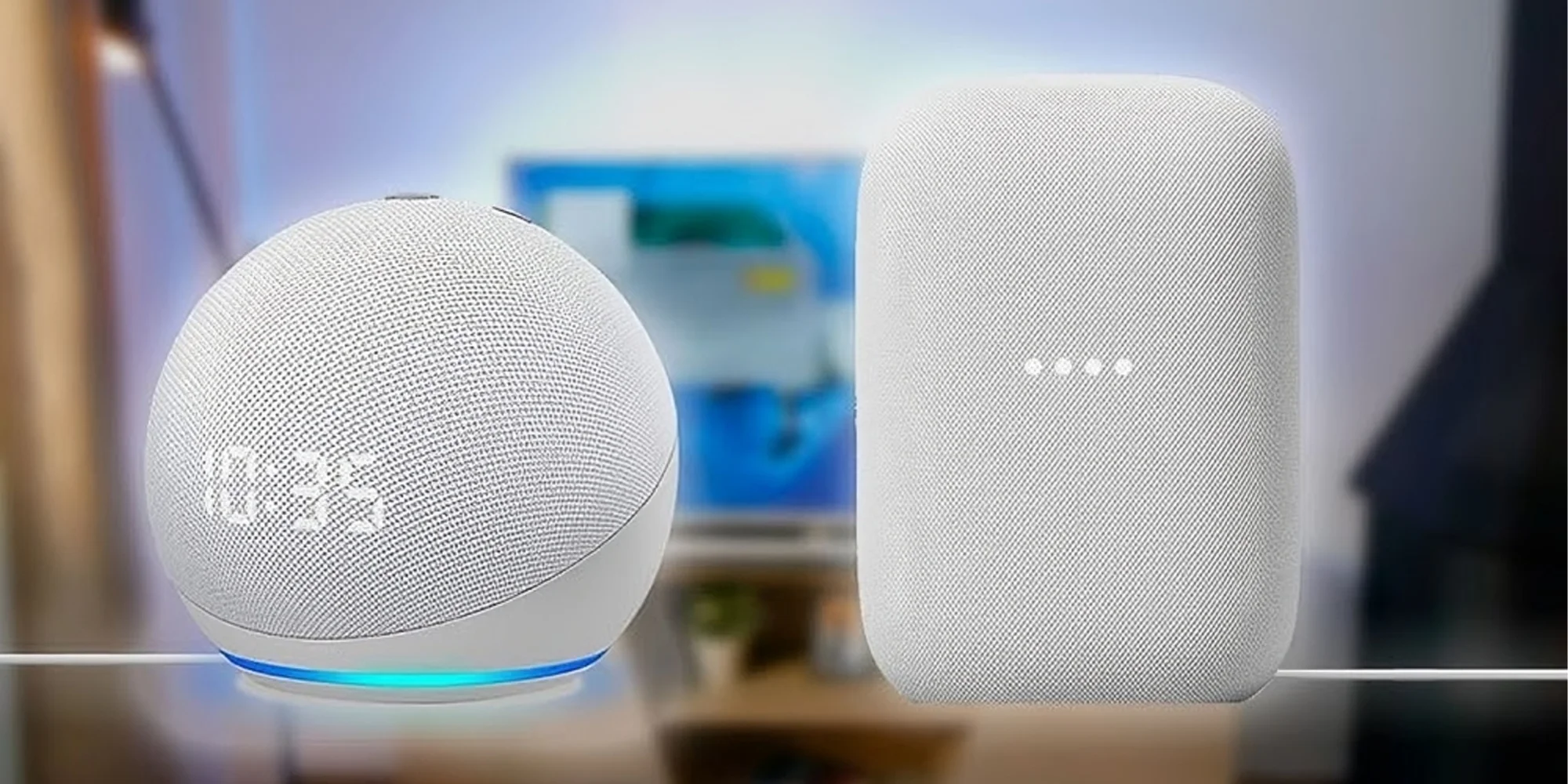Necessary Always Active
Necessary cookies are required to enable the basic features of this site, such as providing secure log-in or adjusting your consent preferences. These cookies do not store any personally identifiable data.
|
||||||
|
||||||
|
||||||
|

The global smart speaker market reached over $15 billion in 2024, with Amazon Alexa vs Google Home commanding a combined 51.2% market share, per Coolest Gadget. Meanwhile, among businesses, 70% of small enterprises use smart speakers to enhance customer service and streamline operations.
But which brand performs better? Selecting the best for businesses goes beyond comparing functionalities. Other factors, such as alignment with long-term goals, existing infrastructure, and overall strategies, also play a crucial part in the decision-making process. But the pertinent question is which one offers the most value for business owners between Google Home and Alexa?
This article answers the question starting with a detailed comparison between Amazon Alexa and Google Home, focusing on their market share, growth strategies, key features, and the advantages and disadvantages of each.
When comparing Alexa vs Google Assistant, businesses often find that while Alexa offers broader device compatibility, Google Assistant provides superior artificial intelligence and contextual understanding for complex tasks.
Managing a business often involves dealing with numerous tasks, including scheduling meetings to managing customer interactions. Google Home and Amazon Alexa are two powerful solutions, but the debate over which is better remains. So, how do they perform in terms of market overview and growth strategies?

Looking at it from a global standpoint, Amazon Alexa maintains a significant lead, holding precisely 28% of the market as of early 2022, according to Statista. Amazon Alexa’s dominance in the industry comes through its aggressive pricing strategies, extensive marketing campaigns, and the establishment of a broad ecosystem of compatible devices.
Additionally, Alexa is seamlessly integrated into different third-party products. This integration makes it a preferred choice for businesses and consumers seeking interoperability, according to Amazon Science.
On the down side, Amazon Alexa has faced financial challenges due to its intense focus on market penetration, resulting in significant financial consequences. For example, according to the WSJ, Amazon’s devices division incurred losses in excess of $25 billion, between 2017 and 2021.
Even with these challenges, Amazon remains unfazed, promoting Alexa as a key part of its smart home strategy. It continues to make Alexa available through various Amazon services and third-party devices.
Google Home, which is driven by Google Assistant, holds a smaller share of the global smart speaker market. With 22.9% global market share, per Coolest Gadget. Even with this lesser market share, Google stands out with its unique strategies for growth.
The company maximizes its competitive advantage and expertise in artificial intelligence, language processing, and search to improve the functionality of Google Home.
Many business owners often ask, does Google Home use AI, and the answer is yes, it leverages advanced artificial intelligence to understand natural language, automate tasks, and deliver more personalized responses.
Additionally, Google’s growth strategy includes integrating its smart assistant with its existing products, which includes Google mail, Google Calendar, and Google Workspace among others. These strategies have made it an attractive choice for businesses already connected to the Google ecosystem.
Related Post – Tesla vs. Rivian – Who Dominates the EV Market in 2025?

Pros:
Cons:
Pros:
Cons:
Choose Amazon Alexa if: Your business prioritizes compatibility with a plethora of smart devices. Also, choose Amazon if you require customized voice applications that are available through Alexa Skills. In a nutshell, Alexa’s compatibility with many smart devices and tools for business integration makes it the go-to choice for businesses.
Choose Google Home if: Your business relies on Google Workspace. Also, Google Assistant’s remarkable NLP and integration with existing Google services make it an ideal choice for enhancing productivity and streamlining workflows. Although it may not be compatible with many devices like Alexa, its remarkable user experience and visual interfaces of Nest Hub devices bring value to business settings.
In conclusion, both Amazon Alexa and Google Home offer compelling features that can improve and modernize business settings. These devices combine speaker functionality with intelligent voice-controlled assistants, making them capable of performing tasks, answering questions, and controlling smart home devices. The ongoing debate of Alexa vs Google Home centers on which smart assistant delivers better integration, performance, and value for both personal and business use.
Businesses can take into consideration the strengths and weaknesses of each platform in relation to the needs of their organization, this way they can tap fully into the benefits of smart assistant technology.
Whether it’s Alexa’s vast compatibility of devices or Google Assistant’s AI prowess, businesses can go innovative, streamline processes, and stay ahead in an increasingly automated world.
Sign up to receive our newsletter featuring the latest tech trends, in-depth articles, and exclusive insights. Stay ahead of the curve!